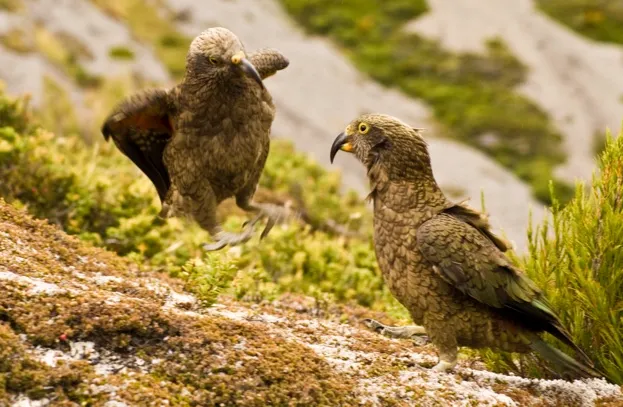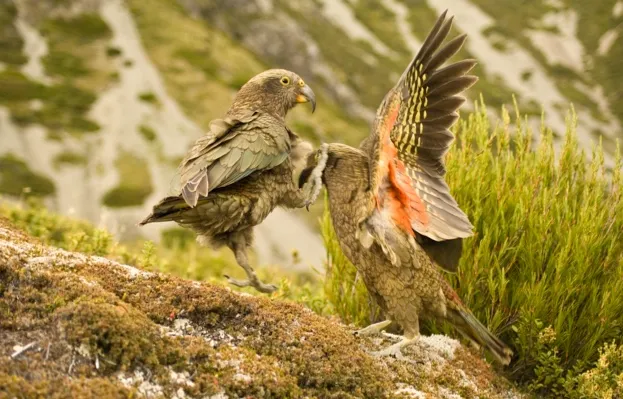Scientists have discovered that when kea parrots hear the ‘play call’ of another kea, they are more likely become playful themselves.
This effect has been described as a positive emotional contagion, akin to infectious laughter in humans.
“Play is very common in kea,” said lead author Raoul Schwing. “They are known for their playful antics and complex play behaviour.”

Hopping is often found in kea play © Raoul Schwing
The kea is a large parrot species found on New Zealand’s South Island, which is listed as Vulnerable on the IUCN Red List.
Schwing and his colleagues used playback experiments to compare the reactions of kea to the ‘play call’ and four other control sounds, including non-play calls by kea and a call from a different bird.
They found that the kea would play more and for longer when they heard the ‘play call’ in comparison to the control sounds.

Two juvenile kea engage in tussle play (wrestling) © Raoul Schwing
“Upon hearing the play call, many birds did not join in play that was already underway, but instead started playing with other non-playing birds, or in the case of solitary play, with an object or by performing aerial acrobatics,” reported the researchers.
“These instances suggest that kea weren’t ‘invited’ to play, but that this specific call induced playfulness, supporting the hypothesis that play vocalisations can act as a positive emotional contagion.”
